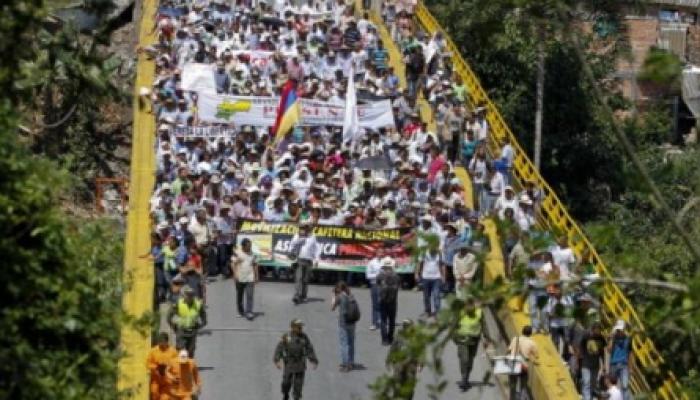Bogotá, April 18 (RHC-WB) – Colombian farmers and agricultural workers are preparing for a new wave of nationwide strikes, set for April 28th, claiming the government of President Juan Manuel Santos has failed to fulfil promises made to farmers in the aftermath of the strikes of 2013.
The upcoming actions threaten to be a repeat of those that occurred in August and September last year, known as the “paro agrario” or “agricultural strike,” which paralyzed Colombia by strangling highway traffic and communications about Bogotá and another 15 regions.
The 2013 blockades, supported and organized by student bodies, farmers, coffee growers and truck drivers, were lifted only when the government agreed to negotiate terms after more than 30 days of demonstrations.
“This mobilization is to show that nothing has been done to help cereal growers, to control the price of fertilizers, stop contraband imported from neighboring countries and protect the production of sugar and ethanol,” said Roberto Correa, leader of Dignidad Agropecuaria, a peasant rights movement.
Current plans are to block key arteries around major cities and stage marches within the cities themselves.
There are also talks between politicians and representatives of indigenous and afro-Colombian groups about joining the planned actions to campaign for the redistribution of land, the peace process and for a share of the economic benefits from the mining boom currently taking place in Colombia.
Land reform and a readjustment of benefits for the agricultural sector have long been a source of discord in Colombia and are seen as one of the reasons for the long running civil conflict. Agrarian reform, including a debate about international free trade agreements signed by the Santos government, was the first point on the agenda for the peace dialogues between the government and the FARC guerrillas (Revolutionary Armed Forces of Colombia) which have been taking place since 2012 in the Cuban capital, Havana.


